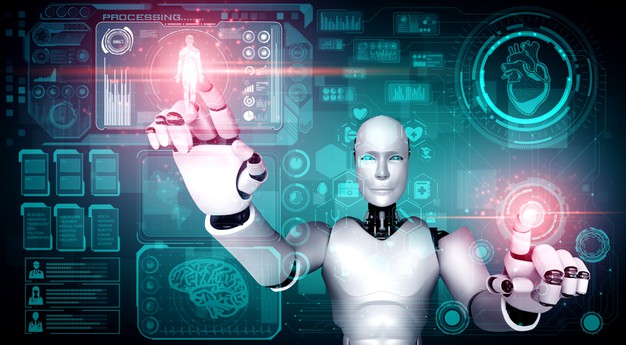The scope of artificial intelligence and machine learning in healthcare looks promising in the future. From early cancer detection to robotic-assisted surgery, AI is helping medical professionals with its predictive power, today and tomorrow.
With AI taking the center stage in various clinical settings, it will soon be impossible to imagine a visit to the doctor, or avail healthcare facilities without AI. Besides, AI coupled with ambient sensors will help doctors shift their focus from paperwork and admin functions to more on patient care.
In the near future, connected care powered by AI and data science will soon become a reality. In this article, we will discuss how artificial intelligence will disrupt the healthcare industry in 2022 and beyond.
1. Imaging Diagnostics
According to the WHO, every year, approximately 17 million people die of cardiovascular diseases, heart attacks, and strokes in particular. Therefore, it has become increasingly important to find a way to timely detect the diseases.
Some healthcare equipment providers have already come up with a non-invasive diagnosis that helps medical experts and patients with detecting the severity of the condition at a lower cost. In the near future, AI and ML will review scans thereby reducing patient waiting time and easing up the work for medical staff.
2. Predictive Analytics
Predictive analytics will help detect a person who is at risk of chronic disease and suggest preventive measures before they get worse. There are few successful developments in the early detection of chronic diseases like diabetes, COPD, and congestive heart failure.
Data science platform like ClosedLoop is providing health care organizations, a flexible analytics solution powered by AI, that enables hospitals to integrate their data effortlessly into machine learning models and get actionable results.
3. Digital Biomarkers
Unlocking new biomarkers is crucial in medical research for the early diagnosis of diseases. Digital Biomarkers can effectively help in the detection of neurodegenerative diseases like dementia and Alzheimer’s.
Neurologists are focusing on how ML can help analyze the scans of cerebral cortex scans for accurate and early detection of Alzheimer’s. This early detection can help slow down or prevent further. In the next couple of years, digital biomarkers will establish a medical breakthrough in improving patient outcomes.
Alongside digital biomarkers, neurologists also suggest AI like social robotics to be a part of the Alzheimer’s cure community. Alongside diagnosis, technology like social robotics can also help patients lead a somewhat normal life.
4. Centralized Infrastructure
A decade later, hospitals will no longer exist as one big building that treats multiple diseases. Instead, doctors will only treat patients with acute illness and prioritize complex surgeries, while treating less urgent cases at pharmaceutical clinics.
By 2030, AI-powered predictive healthcare networks will reduce wait times, improve staff workflows, and also manage the administrative busywork.
Final Thoughts
Although today, we are far from achieving this vision, we are certainly on track with these ideas soon becoming a reality. AI is already augmenting human capabilities by detecting, analyzing, and assessing physician notes, or optimizing patients in emergency care.
Joint efforts of the government and medical research institutions will ensure AI-powered medical systems are transparent and prevent any kind of bias and inequality.
